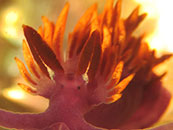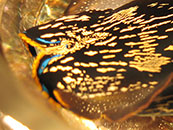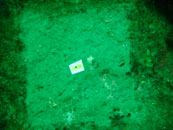- Overview
-
The EPA offers a doctoral degree in Ecology that is run jointly by SDSU and the Ecology Graduate Group at University of California, Davis. The principal objective of the Joint Doctoral Program in Ecology (JDPE) is to provide an environment of excellence in Ecology research, teaching and mentoring for our students. To meet this objective, students will attend both SDSU and UC Davis, and will have both an SDSU major advisor and a UC Davis mentor.
The joint nature of the doctoral program offers two primary advantages. First, students benefit from contact and expertise in and outside of the classroom with faculty members of two strong ecology programs. Second, across the two campuses, students have the opportunity to access facilities and field sites in nearly all the major biomes of California. Faculty in the EPA at SDSU focus their research on all aspects of ecology. We have particular strengths in quantitative ecology, conservation ecology, coastal marine ecology, and ecosystem ecology and global change. For more information, see Focal Areas within the EPA.
JDPE students spend their first year at SDSU with their advisor to begin preparation of a thesis proposal. The student then moves to UCD for additional course work in preparation for the Qualifying Examination. On return to SDSU, the thesis research is completed, and the dissertation is presented. The Ph.D. degree is awarded jointly by SDSU and UCD.
To see what some joint doctoral students are doing for their research, please visit the SDSU Ecology Student Webpage.
- Degree Requirements
-
Through the SDSU and UCD Ecology curricula, students study a broad range of ecological subjects, including theoretical ecology, human ecology, and physical-chemical ecology. During their first year, JDPE students are required to choose an Area of Emphasis (AOE). Students must take courses required of all UCD Ecology students, including Principle and Application of Ecological Theory (Ecology 200A and 200B), 3 ecology seminars (ECL 290s), Ecology and Evolution seminar (ECL 296), and ecology and evolution field courses. Typically, students take Principles of Ecology (BIOL 645/745) at SDSU during their first year in place of equivalent courses at UCD (ECL 200A/200B). Students then typically enroll in 3 Ecology Seminars (ECL 290s), the Ecology and Evolution Seminar (ECL 296), and other ecology courses at UCD during their second year. In addition to meeting these requirements, each student's courses will be determined with an Advising Committee during the first year.
Once coursework has been completed (typically at the end of Year 2), students are required to take a Qualifying Exam. The Qualifying Examination Committee (which includes five faculty, at least two from SDSU and two from UCD) judges the student's readiness for advancement to candidacy by administering an oral examination.
In addition to the above requirements (filing program of study, residency on both campuses, coursework, written dissertation proposal, successful qualifying exam, and annual progress reports) Students are required to formulate and carry out a research project that results in a dissertation. The final step to completing the degree is submitting the dissertation to the student's Dissertation Committee for approval and an exit dissertation seminar.
Links to important forms can be found on the UC Davis Graduate Studies Forms Page.
- Admission
-
Admission eligibility is based on:
- Overall undergraduate GPA of at least 3.2 for the last 60 semester units, and have demonstrated superior performance in upper division course work in the major.
- Due to the Covid-19 pandemic, the requirements outlined below that applicants for graduate study at SDSU submit scores for the GRE are suspended for the Spring and Fall 2021 admissions cycles.
- For foreign students, a minimum score on the TOEFL exam of 550 (paper exam) or 80 (computer-based exam) is required.
- Completed courses in physics, chemistry, mathematics, and statistics. Minimum requirements include one year of general chemistry, one year of physics, a course in calculus, and a course in biostatistics.
- A demonstrated preparation and capacity for doctoral work in the field of ecology.
There are two critical steps in the admissions process
- Submitting all necessary materials by the application due dates (see Ph.D. Application Procedures for all required documents and due dates).
- 2) Finding a faculty advisor - Students must have an EPA faculty member willing to accept them into his or her laboratory as a condition of acceptance to the program. Prospective students are strongly encouraged to contact faculty whose research interests are compatible with their own to determine if these faculty are accepting students, and if so, to arrange a visit to the campus. Most faculty members will request to see a curriculum vitae and a statement of research interests from prospective students.
ALL required documents and admissions procedures can be found here
- Cost of Study and Support
-
(All fees and costs are set and subject to change by the Trustees of the California State University)
Once admitted, basic tuition for California residents in good standing is generally paid by the Graduate Office for up to 12 units the first year to cover required courses and course deficiencies, if any. The 2nd year at UCD tuition and fees are generally covered up to 12 units for required courses. The 3rd year and beyond the Graduate Office will cover basic tuition for up to 6 units only. This applies to students that have a TA or RA contract. Courses taken at SDSU must be Program-of-Study curriculum related, and approved by the guidance committee and the JDPE coordinator.
- Tuition for non-resident and international students usually is waived. U.S. citizens can apply for California residency in their first year. However, non-residents need to establish residency as soon as possible. International students are required to have additional support because the program is unable to pay for tuition at UCD. Grants from a student's advisor or from outside sources may be available to offset this expense. International students can find more information on graduate tuition requirements at SDSU International Student Services.
- The Graduate Office does not provide for the Campus Mandatory Fees (currently ~$989 per semester). Students are responsible each semester they are enrolled for their own Campus Mandatory Fees but in some cases, this fee may be covered by the student's major professor from research funds if available and appropriate. This fee is waived while students attend classes at UCD.
- Tuition for non-resident and international students usually is waived. U.S. citizens can apply for California residency in their first year. However, non-residents need to establish residency as soon as possible. International students are required to have additional support because the program is unable to pay for tuition at UCD. Grants from a student's advisor or from outside sources may be available to offset this expense. International students can find more information on graduate tuition requirements at SDSU International Student Services.
- Support and Financial Aid
-
Students admitted to the JDPE are offered support from research assistantships (RAs) or teaching assistantships (TAs) and also receive a comprehensive benefits package. Students typically will receive support for 5 years, as long as they are making satisfactory progress and are satisfactorily discharging other responsibilities related to the stipend. The normal teaching load for students receiving these stipends is 6 hours (e.g. Two 3-hour laboratory sections) per week plus grading and preparation of assignments. Typically, students without other support TA two lab sections in their first year, none at UCD, and one lab section per semester in years 3-5. The current stipends vary from $22,556 to $24,474, depending on progress through the program. Additional summer RAs are often provided by individual advisors to supplement this stipend.
Fellowships, scholarships, and other forms of financial assistance from university, state, federal, and private sources are also available. More information about fellowships and loans can be obtained from SDSU Financial Aid & Scholarships Office and SDSU College of Graduate Studies on campus . Additionally, the SDSU Field Stations Program offers several student-support opportuntities.
- JDPE forms
-
Travel authorization form (please download).
Travel expense claim form (please download).
Travel policy exception request form.
Request for JDPE Funding form.
Request for waiver of defensive driving certificate.
Authorization for release of drier record information.
Authorization to use privately owned vehicles on state business.
UC Davis GS PhD Candidacy Form.
JDPE student handbook 2018-2019.
JDPE student handbook 2019-2020.
JDPE student handbook 2022-2023.
JDPE student handbook 2023-2024.
For more information about the JDPE program contact the Program Coordinator or Director:
Brenda Godinez Coordinator of the Ecology Doctoral Program Walter C. Oechel Director of the Ecology Doctoral Program Department of Biology San Diego State University San Diego, California 92182-4614


